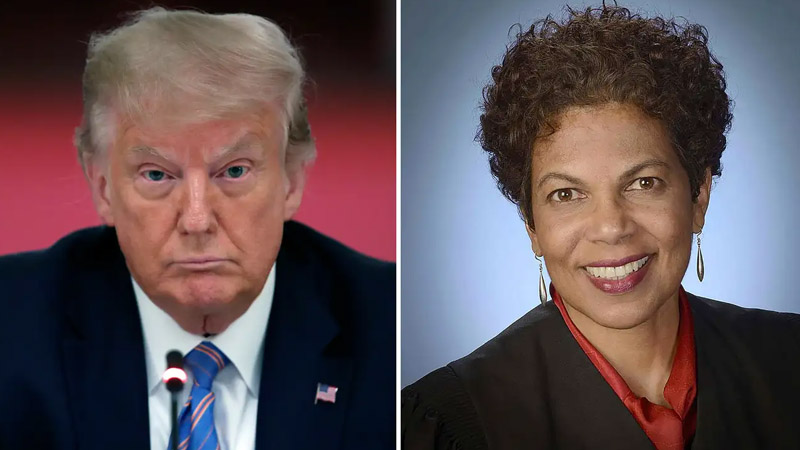Judge Tanya Chutkan’s Stern Stance on 2020 Election Interference Trial: No Tolerance for Delay Tactics

Photo: Associated Press (AP)
A CBS News article on Saturday, November 4, highlighted Judge Tanya Chutkan’s firm stance in the trial related to the 2020 election interference, in which she has made it abundantly clear to former President Donald Trump and his attorneys: there will be no tolerance for delay tactics in her courtroom.
Taking an extraordinary step, Judge Chutkan has expedited the process of selecting a jury crucial to the trial overseen by Special Counsel Jack Smith—a trial that has seen Trump’s defense attempt to create setbacks and hindrances.
Her swift handling of motions and the decision to move up the jury selection date have signaled her commitment to an expedited pursuit of justice, capturing the attention of both legal analysts and the public.
Glenn Kirschner, a former prosecutor experienced with complex jury processes, commented on MSNBC about the significance of this development. He pointed out that while jury selection in high-stakes cases is usually a protracted affair, Judge Chutkan has set the wheels in motion much earlier than anticipated.
Kirschner noted the previously expected March 4th start date for jury selection has been superseded by Judge Chutkan’s announcement that jurors would be brought in as early as February 9th—a decision that underscores her intent to proceed without the case being held hostage to political agendas.
Judge Chutkan’s actions starkly contrast the delaying strategies seen in Trump’s other legal entanglements, such as the classified documents and obstruction case in Florida, where his legal team has frequently employed stalling tactics.
In a decisive rebuke to such maneuvers, Judge Chutkan’s resolve reaffirms her dedication to an efficient and independent judicial process.
This acceleration marks a pivotal moment in the accountability process for the 2020 election events. It assures the public that the trial will be conducted fairly and without undue delay.
As the trial progresses, the international community will closely observe how this legal drama, devoid of political gamesmanship, unfolds in the American judicial system.


